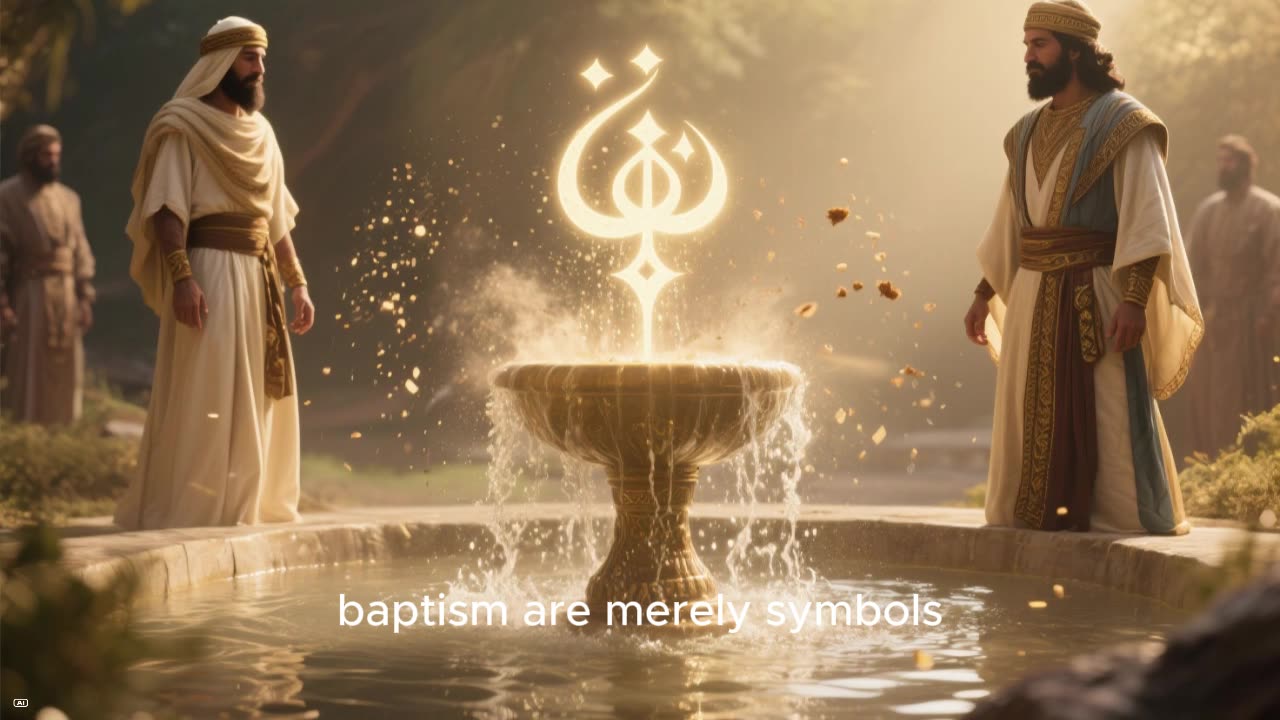Premium Only Content

6 Gnostic Teachings from the Gospel of Judas
6 Gnostic Teachings from the Gospel of Judas
The Gospel of Judas, along with related Gnostic texts, delivers some of the most shocking and disruptive teachings in early Christian history. Not only does it radically reinterpret the roles of Jesus and Judas, but it throws into question many foundational beliefs of traditional Christianity—reshaping views on God, salvation, sacrifice, and religious authority.
Judas: From Betrayer to Chosen Ally
Perhaps the most startling teaching is the portrayal of Judas, not as a traitor, but as the only disciple who truly understood Jesus. In the Gospel of Judas, Jesus confides secret, cosmic truths to Judas alone—truths hidden from the rest of the apostles. Judas is tasked with a paradoxical but divinely sanctioned mission: to “betray” Jesus, thus enabling Jesus to shed his earthly body and return to the spiritual realm.
Jesus says to Judas: “For you will sacrifice the man that clothes me.” This reveals that Judas’s “betrayal” is part of a preordained plan for Jesus’s spiritual liberation, not a sinful act against God.
Judas, not Peter, is depicted as Jesus’s closest and most spiritually aware companion, upending the narrative held by the canonical Gospels.
The “False God” of Israel and Rejection of Creation
A core Gnostic shock is the claim that the God of Israel—the Creator worshipped by the apostles and in the Old Testament—is not the true God, but a lower, ignorant angelic being (the Demiurge or Yaldabaoth). According to the Gospel of Judas and Sethian Gnosticism, this Demiurge traps souls in the flawed material world. Jesus’s mission is to liberate humanity from the rule of this false deity.
Mainstream Christianity teaches the unity and goodness of the Creator; Gnostic texts ruthlessly separate the true, hidden God (the source of light) from the materially-obsessed false god.
Secret Knowledge (Gnosis) over Faith or Ritual
In canonical Christianity, salvation is based on faith and participation in the sacraments. In the Gospel of Judas, the highest truth is concealed and accessible only to those with special spiritual knowledge—gnosis. Most of the apostles are said to misunderstand Jesus entirely, worshipping the wrong deity and practicing false rituals.
Jesus laughs at his disciples’ rituals, including the Eucharist (communion), and mocks their ignorance about the true God.
Even practices central to early Christians—martyrdom, the Eucharist, worship—are sharply criticized as misguided, reinforcing ignorance rather than bringing salvation.
Rejection of Martyrdom and Sacrifice
Remarkably, the Gospel of Judas takes aim at the growing Christian cult of martyrdom and the interpretation of Jesus’s death as a sacrifice for sin. It suggests that God never desired blood sacrifice—neither animal nor human, neither in the Old Testament nor in the deaths of martyrs.
Martyrdom, considered holy by many early Christians, is seen as a tragic misunderstanding, orchestrated by those in thrall to the false god.
Humanity Divided: The Elite and the Unawakened
In another jarring teaching, humanity is split into two races or groups:
The “immortal soul” group, associated with Judas and Gnostic initiates, capable of returning to the divine realm through knowledge.
Those like the other apostles, bound to the physical world and destined to perish spiritually and physically, unable to enter the pure spiritual world.
Only the elect, who possess the "spark" or "seed" of true knowledge, are capable of salvation—an elitist vision foreign to most mainstream Christian teaching.
Jesus as a Mocking, Secretive Teacher
The Gospel of Judas’s Jesus does not comfort or gently teach but often laughs at his disciples, mocking their ignorance and their attachment to earthly piety and ritual. He withholds the true message from the masses, reserving revelation for Judas alone. This is a sharp contrast with the open and inclusive image of Jesus in the New Testament.
Related Gnostic Teachings
Other Gnostic gospels reinforce these themes:
The Gospel of Thomas: Teaches that salvation comes from discovering the divine spark within, not by external authority or ritual.
The Gospel of Philip: Critiques the literal reading of sacraments, arguing that physical rituals are symbolic and only meaningful when paired with inner knowledge.
The Gospel of Mary: Like Judas, Mary Magdalene is seen as having special access to Jesus’s hidden teachings, and her rivalry with Peter highlights the tension between secret knowledge and institutional authority.
-
 1:13:16
1:13:16
vivafrei
3 hours agoJohn Bolton is a DUMB CRIMINAL (Allegedly) - Trans Madness in Loudoun Country! Tampon Tim AND MORE!
63.1K31 -
 2:45:30
2:45:30
Barry Cunningham
16 hours agoBREAKING NEWS! PRESIDENT TRUMP MEETS WITH UKRAINE PRESIDENT ZELENSKY!
61.1K19 -
![MAHA News [10.17] Fertility Crisis, Redoing Vax Schedule, Psychiatry Corruption, Vegan vs Carnivore](https://1a-1791.com/video/fwe2/78/s8/1/Q/v/s/r/Qvsrz.0kob-small-MAHA-News-10.17.jpg) DVR
DVR
Badlands Media
14 hours agoMAHA News [10.17] Fertility Crisis, Redoing Vax Schedule, Psychiatry Corruption, Vegan vs Carnivore
9.56K2 -
 LIVE
LIVE
Owen Shroyer
2 hours agoOwen Report - 10-17-2025 - President Trump And Zelensky Take Questions At The White House
1,293 watching -
![[Ep 772] No Kings for Weak Minds: Funding & Following | CA Homelessness: Crisis & Scandal](https://1a-1791.com/video/fww1/d8/s8/1/g/j/B/r/gjBrz.0kob-small-Ep-772-No-Kings-for-Weak-Mi.jpg) LIVE
LIVE
The Nunn Report - w/ Dan Nunn
2 hours ago[Ep 772] No Kings for Weak Minds: Funding & Following | CA Homelessness: Crisis & Scandal
161 watching -
 1:18:31
1:18:31
The Culture War with Tim Pool
5 hours agoTim Pool Vs. Liquid Death CEO DEBATE
109K135 -
 LIVE
LIVE
Times Now World
18 days agoLIVE Jeffrey Sachs | Netanyahu Turned U.S. Military Into His Own War Machine | Times Now World
35 watching -
 LIVE
LIVE
ahdedazs
1 hour agoARC Raiders Playtest! *Multistreaming*
10 watching -
 1:58:33
1:58:33
The Quartering
4 hours agoCrowder Roasts Entitled Black Man, Hasan Piker Meltdown, Leftoid Instant Regret!
37.2K40 -
 1:03:29
1:03:29
DeVory Darkins
5 hours ago $30.44 earnedKash Patel drops DEVASTATING NEWS for Democrats as ANTIFA suffers MAJOR LEGAL BLOW
80.2K132